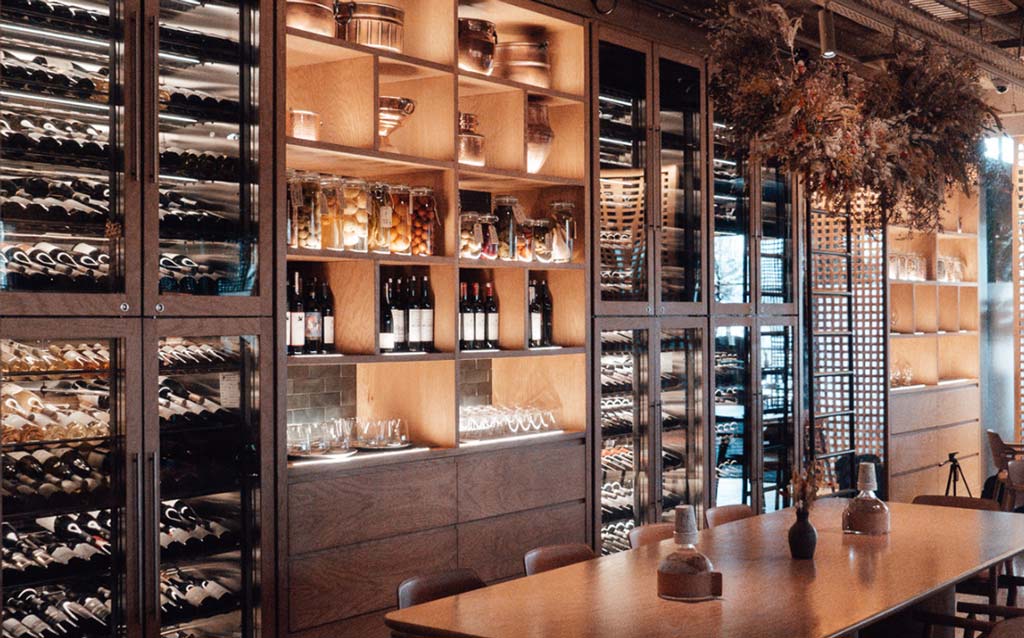Let me guess—you haven’t thought about (or heard from) your accountant since filing this year’s tax returns.
If you’re only hearing from your accountant during tax season or year-end, you’re getting shortchanged. And frankly, you might be slowly bleeding money without even knowing it.
After spending years as a restaurant owner working with one of the country’s largest restaurant accounting practices, I learned something crucial: the difference between a good accountant and a great restaurant accountant isn’t just financial expertise—it’s industry relevance (because restaurants are a wild place and you need a pro who knows what they’re doing).
Here’s what you should actually expect from your restaurant accountant, and why settling for less is costing you more than you realize.
BTW, I interviewed Adam Berebitsky, former partner in charge of BDO’s National Restaurant Practice, for this piece, so it’s full of incredible insights.
Your Accountant Should Know Restaurants Inside and Out
Let’s start with the obvious: your accountant better know restaurants. Not just “I’ve done a few restaurant tax returns” knowledge, but deep, specialized expertise.
Adam Berebitsky, former partner in charge of BDO’s National Restaurant Practice, puts it bluntly:
“I think if you have a true restaurant accountant, they really understand the industry. They’re not doing one or two restaurants. They’re doing 20 to 100+ restaurants. So they really understand the restaurant and especially understand the segment that your restaurant is in.”
Here’s why this matters: Restaurants operate on razor-thin margins where small inefficiencies can kill profitability.
A generalist accountant might miss that your 32% food cost is actually excellent for a steakhouse but terrible for a pizza shop. They might not catch inventory shrinkage patterns that a restaurant specialist would spot immediately.
Without industry-specific knowledge, you’re essentially paying someone to learn your business while potentially missing critical financial red flags that could save or cost you thousands.
At the end of the day, your accountant should:
- Understand your specific segment (QSR, casual dining, fine dining, etc.)
- Know industry-specific metrics like theoretical vs. actual costs, prime costs, and sales per labor hour
- Be familiar with restaurant-specific tax implications and compliance requirements
- Understand the unique challenges of inventory management, labor scheduling, and cash flow in restaurants
Red flag: If your accountant doesn’t know what a theoretical cost report is or can’t explain why your food cost percentage matters, you’re working with a generalist who’s learning on your dime.
They Should Be Your Industry Connector
The reality is that any accountant should be good at the technical side—taxes, compliance, financial projections, etc.
Being good at that is the basic requirement.
Going above and beyond is actually being able to introduce you to other specialists in the industry and provide strong networking opportunities that could lead to future partnerships, work, deals, investments, and beyond.
A great restaurant accountant is your gateway to the entire industry ecosystem.
When I was a client of Adam’s firm, I remember calling him with an HR issue (yes, your accountant can help you with that), and he told me that he’d connect me with an HR Director he knew who just dealt with a similar situation.
That simple gesture saved me time, stress, and money beyond what I could have imagined.
As Adam puts it,
“Your accountant should be plugged into the restaurant industry community. They should know people like “John Hamburger” (owner of Franchise Times and Restaurant Finance Development Conference) and attorneys like “Dennis Monroe,” who specializes in restaurant law.”
It’s really important that your accountant be able to connect you with vendors and suppliers with proven track records, such as real estate agents, specialized lenders, attorneys, and even potential investors.
This matters because the restaurant industry is incredibly tight-knit.
“Everyone’s willing to share,” and “if you know people throughout the industry, whether it’s other restaurants or other attorneys or anyone within the ecosystem, you can help point your clients to where they need to find their answers.”
And this goes so far beyond the notion of knowing the right people. It’s way more about your accountant knowing the industry, market trends, and opportunities enough to be a proactive problem solver for your business.
They Should Push You Toward Better Financial Management
A great restaurant accountant doesn’t just record what happened—they help you understand what should happen and why it’s not happening.
They should insist you have:
Running Theoretical vs. Actual Cost Reports
Your theoretical cost is what each menu item should cost based on your recipes and current ingredient prices. Your actual cost is what you’re really spending. The gap between these two numbers reveals where you’re losing money.
Adam says,
“It amazes me that some restaurants don’t have reports that show their theoretical costs. How do you know what your gross profit should be if you don’t know what your theoretical cost of all your items are?”
For example: Your signature burger should theoretically cost $3.50 to make based on your recipe, but your actual food cost shows you’re spending $4.20 per burger. That 70-cent difference might be coming from over-portioning, waste, theft, or ingredient price increases you haven’t caught up with. Multiply that by 1,000 burgers sold monthly, and you’re losing $700 per month on just one item.
Yes, your accountant can help you with this by setting up systems to track recipe costs, monitor ingredient price changes, and generate reports comparing theoretical to actual costs. They should also help you identify which menu items are your biggest profit drains and guide you through menu engineering decisions.
The bottom line: If you’re doing $10 million in revenue and you can save just 1% through better cost control, that’s $100,000 straight to your bottom line.
Tracking Labor Efficiency Metrics
Your accountant should be obsessed with your labor efficiency because, as Adam notes,
“if you can get your labor costs to a place where essentially it’s fixed costs and you’re getting these efficiencies… that’s where you can make real money.”
Your accountant should track:
- Sales per labor hour (both front and back of house): This measures how much revenue each labor hour generates. If your back-of-house generates $45 per labor hour while industry standard for your restaurant size and sector is $60, you’re either overstaffed or underperforming on sales.
- Labor cost as a percentage of sales: This should vary by restaurant type, but your accountant should know what’s normal for your segment and alert you to deviations.
- Productivity benchmarks: Comparing your efficiency to industry standards and your own historical performance. Are you getting better or worse at converting labor hours into revenue?
Think about it: labor costs are one of the few things you can actually control (unlike commodity prices). Your accountant should help you understand whether efficiency problems stem from overstaffing, poor scheduling, or operational issues. They should also help you model how labor efficiency improvements flow directly to your bottom line.
Conducting Regular Financial Reviews
Your accountant should want “period-by-period financial statements from the restaurant. Things can happen so quickly in this industry.” They should be analyzing these statements and providing insights, not just filing them away.
Usually, this happens at a couple of points: monthly and quarterly.
Your accountant should review your financials monthly (at a minimum) and immediately flag any concerning trends. Did your food cost spike 3% last month? If so, they need to call you (not the other way around) to understand why and help you course-correct before it becomes a bigger problem.
At least quarterly, your accountant should sit down with you for strategic financial planning. Not just tax planning—business planning. They should help you understand not just what happened, but what needs to happen next for you to hit your targets.
As Adam emphasizes:
“You have to be able to look at the financials and pivot. If anything, the pandemic taught us in this industry is how to pivot. But that shouldn’t have just happened during that period of time, that should be happening all the time.”
Based on my experience, your accountant should proactively identify:
- Seasonal trends that affect cash flow and help you plan accordingly
- Vendor pricing changes that impact your margins before they compound
- Labor scheduling inefficiencies that are costing you money
- Menu items that are underperforming or over-costing
- Operational changes that are affecting your key metrics
Your accountant must help you identify when changes are needed and model the financial impact of different strategic decisions.
They Should Support Your Growth Plans
When you’re ready to expand, your restaurant accountant should be your strategic partner, not just your bookkeeper.
Here’s where their expertise becomes invaluable:
Evaluating Pro Forma Development for New Locations
A good restaurant accountant will help you put together a pro forma and evaluate whether your occupancy costs will work for a new location.
It’ll start with an analysis of potential locations by projecting realistic sales volumes based on factors such as seat count, local demographics, and the competitive landscape. Your accountant would help you determine if, for example, paying $15,000 per month in rent makes sense when your projected sales can only support $12,000 in occupancy costs.
They should ask the hard questions: If your pro forma shows occupancy costs at 12% but your target market typically runs 8-10%, they should flag this as a potential deal-breaker before you sign a lease.
As Adam notes, “if I pro forma the sales I can do in that location based on the seats, but my occupancy costs ends up being 10 to 15%, then you can’t do that deal. It’s just not going to work.”
They also need to go beyond the basics by modeling different scenarios. What happens if sales are 20% lower than projected? What if build-out costs exceed budget? They should stress-test your assumptions, not just validate them.
Leveraging Financial Modeling for Expansion Opportunities
Spaking of, you want to work with an accountant who can help you understand the true financial impact of growth, including hidden costs that many restaurant owners miss.
They can do this by modeling:
- Build-out and equipment costs with realistic timelines and potential overruns
- Working capital requirements for inventory, initial marketing, and operating expenses during ramp-up
- Cash flow timing including the lag between opening and reaching steady-state profitability
- Impact on existing locations if management attention or resources are diverted
Many restaurant owners focus on revenue projections but underestimate the cash flow impact of expansion. Your accountant should help you understand that a successful $2 million location might still create negative cash flow for the first 6-12 months, and you need to plan for that reality.
Build Strong Funding Strategies
Ah, the ever-present question of debt vs equity for restaurants.
Your accountant can be a super valuable resource in this discussion by helping you evaluate different funding options like:
- Internal funding: Can your existing cash flow support expansion without jeopardizing current operations?
- Traditional bank financing: Which banks actually lend to restaurants, and what terms can you realistically expect?
- SBA loans: Are you eligible, and is the paperwork burden worth the better terms?
- Equipment financing: Can you separate equipment costs from real estate to get better rates?
- Private equity or investor funding: When does giving up equity make sense for faster growth?
As Adam explains, “we’ve seen certain banks say no right away, but then there’s ones we know just here in our region who you wouldn’t expect to do restaurants, but they’ve done so many and they found that they’re good people and they make money and they’re good cashflow.”
Your accountant should know which local and regional banks have appetite for restaurant loans, what loan structures work best for restaurants, and how to present your financial story in a way that resonates with lenders.
Use Market Analysis From Relevant Client Bench
This is where having a restaurant-specialized accountant becomes invaluable. They should be able to provide market intelligence that you can’t get anywhere else by offering insights like:
- Realistic sales projections based on similar concepts in similar markets
- Operating cost benchmarks for your target market (labor costs, utilities, insurance)
- Competitive landscape analysis from working with other operators in the area
- Seasonal trends that affect cash flow in specific markets
Your accountant should be able to tell you things like, “Based on our other clients in that market, your labor cost assumptions are too low—that area runs 3-4% higher than you’re projecting,” or “Our client with a similar concept there is doing $1.2 million annually, so your $1.5 million projection might be aggressive.”
For example, when I brought Adam a pro forma for a new market, he could connect me with existing clients operating in that area to validate my assumptions. This kind of market intelligence is impossible to get from online research—you need someone with actual clients generating actual financial data in your target market.
Your Accountant Could Be Doing So Much More
Never knew your accounting partner should do all that, huh?
Yeah, me either when I was in the thick of restaurant management, which honestly set me back big time.
Your restaurant accountant should be one of your most valuable business relationships. They should know your industry, proactively manage your financial health, connect you with the right people, and support your growth plans.
If you’re not getting this level of service, you’re not just missing out on better accounting—you’re missing out on the insights, connections, and strategic guidance that could transform your business.
Stop accepting mediocre. Your restaurant deserves better.
Looking for a restaurant accountant who actually understands your business? Visit “website” to connect with specialized firms that know the restaurant industry inside and out.



